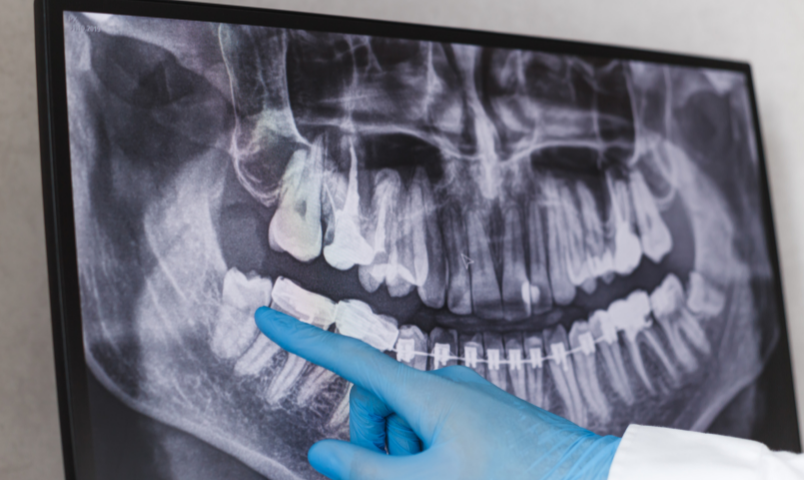Our advice on how best to recover from your wisdom teeth removal

The time may have come for you to have your wisdom teeth removed. While this is a significant moment in the history of your teeth, it’s something that we at Myers Street Dental handle on a regular basis, and you should know that you’re in good hands.
The process doesn’t have to be painful or overly stressful, so here’s some facts, hints, and tips to put you at ease and to help you recover quickly after the procedure.
Did you know that Wisdom teeth are the third set of molars in the back of your mouth? People can have from one to four wisdom teeth, while some people don’t have any at all.
Removing them is sometimes necessary and can be brought about when one – or several – of your wisdom teeth become impacted or infected, start to damage other teeth, or cause other dental problems.
How do I know my wisdom teeth need attention?
You may be experiencing red, swollen, tender or bleeding gums, jaw pain, swelling around the jaw, bad breath, an unpleasant taste in your mouth, or difficulty opening your mouth. After consulting your dentist – and oral and maxilla facial surgeon – it may be determined that your wisdom teeth need to be removed.
The major benefits in removing your wisdom teeth include prevention of pain and infection. The removal process can prevent future damage to neighbouring teeth and can decrease the risk of oral disease and inflammation, prevent cysts, tumours, and jaw damage. When wisdom teeth are causing these kinds of problems, or x-rays indicate that they might cause problems in the future, they’ll need to come out.
Many dentists are of the opinion that it’s better to remove wisdom teeth at a younger age, before the roots and bone are fully formed, and when post-surgery recovery is generally faster. Many young adults have their wisdom teeth pulled before the teeth cause problems. With so many aspects of dentistry, prevention is always better than a cure.
The recovery process
You should avoid sleeping on your side for a few days after having your wisdom teeth removed. Following wisdom teeth extraction surgery, we recommend you sleep in an elevated position for the first two to three nights.
Elevating your head allows your body to drain more of the fluid away from the extraction site. Why do this? Lying flat on your back will make it much more likely that the amount of swelling will increase. Sleeping in an upright position will keep the bleeding under control.
The second day is usually the worst in terms of swelling. The pain and swelling should begin to subside as each day passes following the surgery. Around three days after your tooth extraction, your gums will begin to heal and close around the area where your tooth was removed. After about a week, or a week and a half post-procedure, the opening will fully close, and your gums should no longer be tender or swollen.
Because it can take up to two weeks to fully recover from the surgery for having your wisdom tooth or teeth removed, so you may have a swollen mouth and cheeks during this time. This will gradually improve; gently pressing a cold cloth to your face can help ease and reduce the swelling.
In the immediate few days after the surgery, you should try to limit your talking. The more you talk, the more your tongue, mouth and associated muscles move … disturbing the forming blood clots. It is also highly recommended to avoid vigorously rinsing your mouth or touching the wound area, especially with your tongue.
Eating and drinking
After your wisdom teeth have been extracted, don’t use drinking straws, spit, or smoke. These kinds of activities can disrupt the blood clot that’s starting to form over the tooth extraction site. If the clot is dislodged, there may be more bleeding, pain, and you may also experience ‘dry sockets’, a potential side effect.
It’s generally a good idea to avoid alcohol after an extraction for the length of the healing process, which is around 72 hours. To be on the safe side, though, you may want to wait 7 to 10 days for the blood clot to fully form and the extraction site to finish healing. During that time, drink water instead.
Maintaining a diet full of soft, delicious, and healthy foods in the days and weeks after wisdom teeth removal is crucial to your recovery.
You should eat only ‘soft’ foods for the first week, so soups, scrambled eggs, mashed potatoes, and meatloaf are going to be fine and will get the job done. For at least the first two weeks avoid eating hard, crunchy, or very chewy foods, such as crusty breads, steak, nuts, or popcorn. You will find you can resume normal eating after a few weeks of having had your wisdom teeth removed.
Physical activity
To allow for a full recovery, we recommend you wait at least 24 hours after your wisdom teeth removal before you do any type of exercise. The gum area and sockets where the teeth were extracted may bleed for many hours after a surgery. And it is important to allow full recovery.
You’ll benefit in the long-term from having your wisdom teeth removed, and the recovery process from this procedure need not be a stressful and painful one.
Should you feel any discomfort or pain after your Wisdom teeth extractions, please ensure you see your dentist as soon as possible.
Myers Street Dental is committed to providing our patients with the very best dentistry expertise, advice and care. To find out more about our practice, click here.
By Dr Gautam Herle

